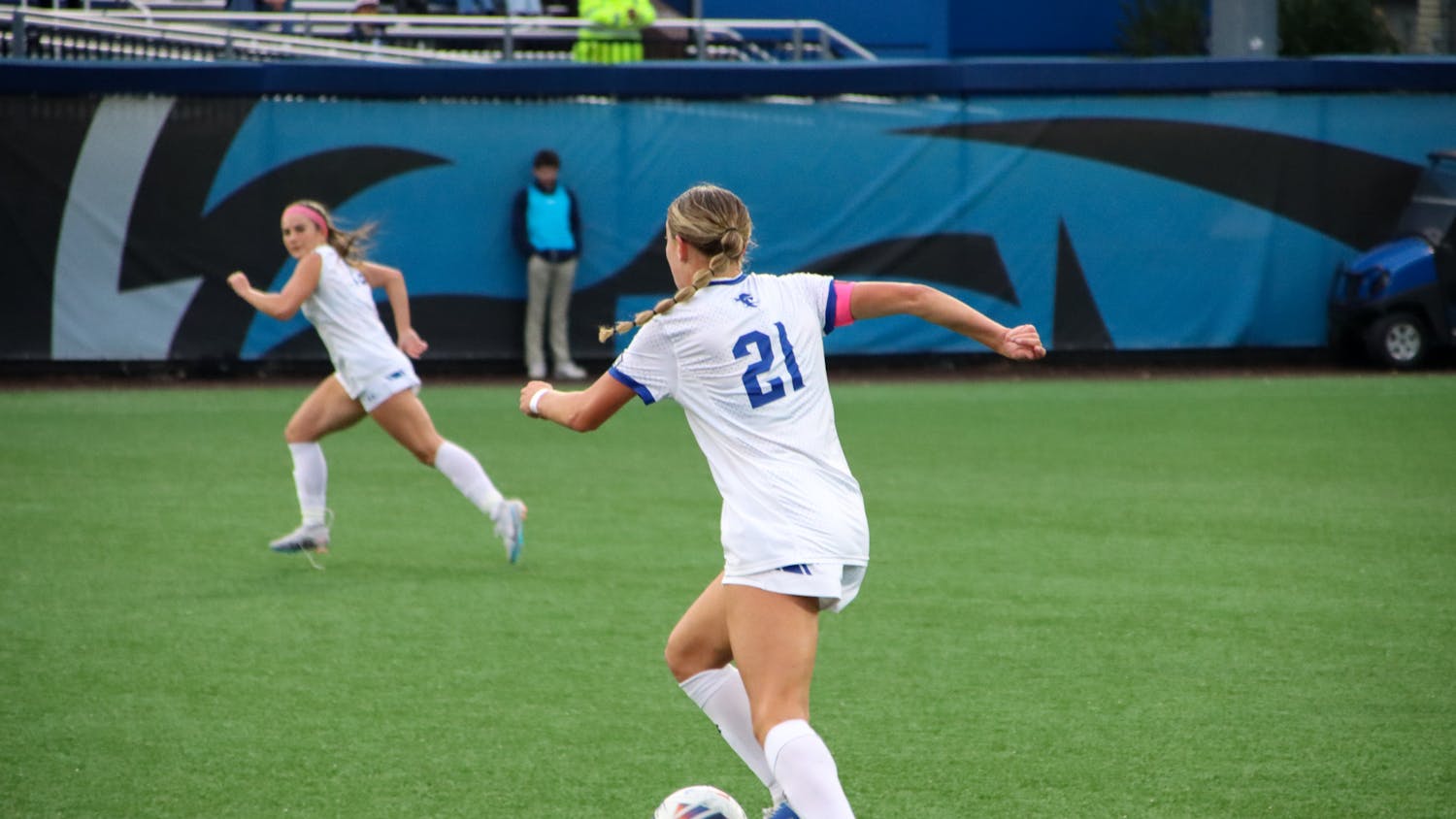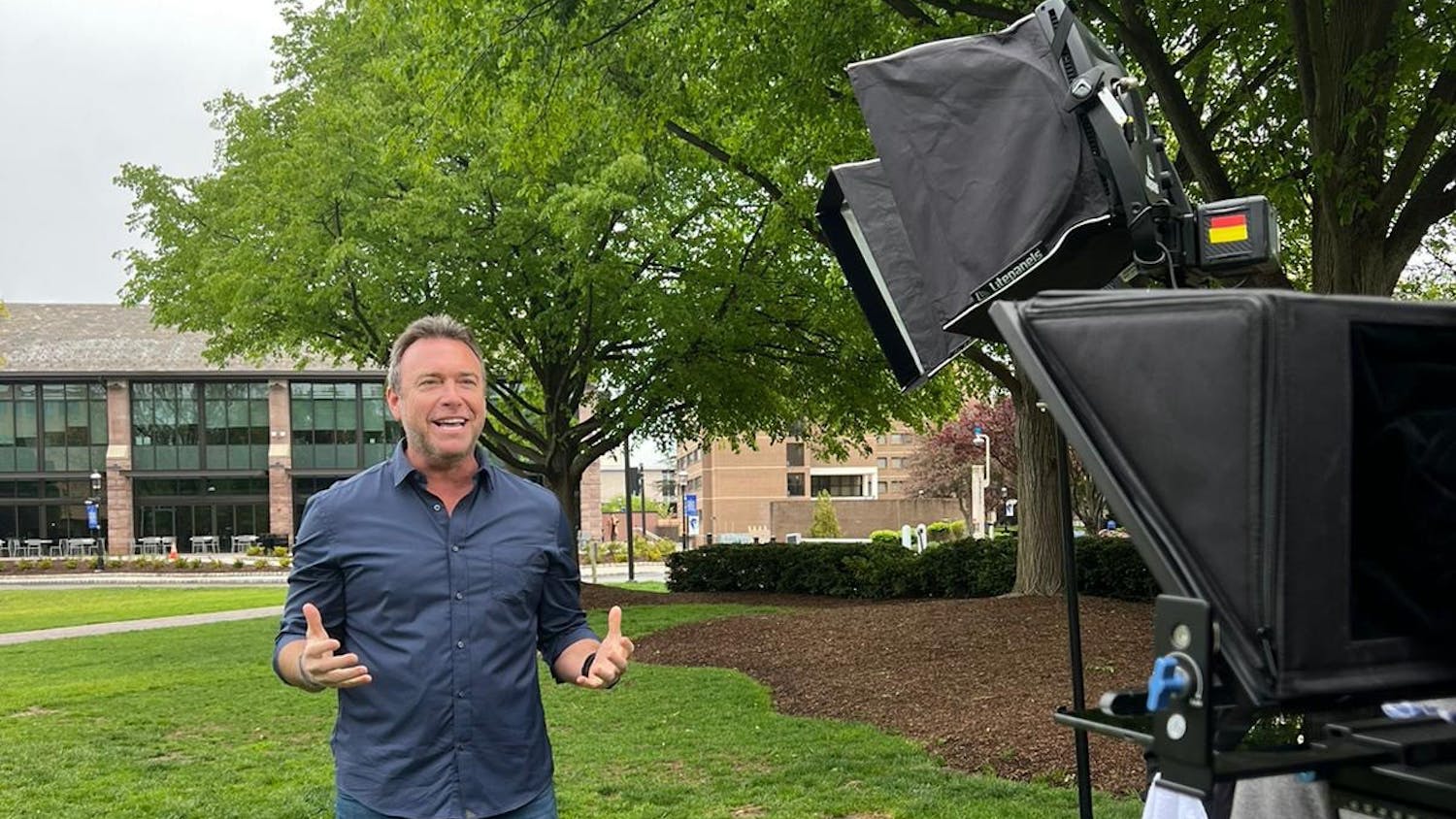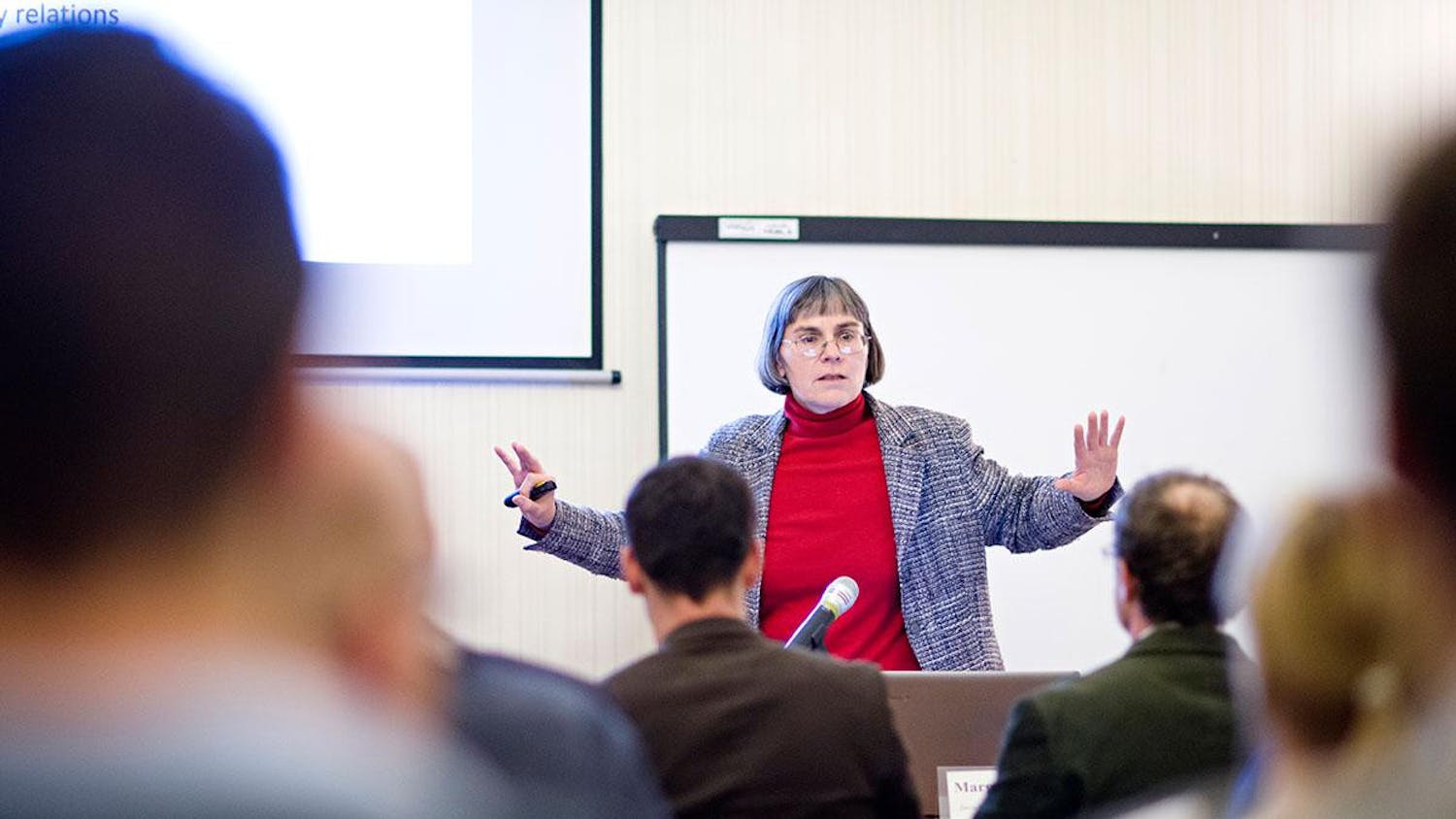[caption id="attachment_12025" align="alignnone" width="300"] Courtesy of ARCOS Orchestra[/caption]
There will be lights, talent and culture to paint a musical night by a skilled orchestra and enthusiastic students.
The Arcos Orchestra will hold an evening of music and imagery at the South Orange Performing Arts Center (SOPAC) on Wednesday, Nov. 18 at 6:30 p.m. as part of Seton Hall’s four-part concert series, according to the SOPAC website.
The performance is co-presented with the Charles and Joan Alberto Italian Studies Institute, according to the chair of the music program and director of the classical concert series, Dena Levine. Levine oversees the program and helps coordinate the musicians for each season.
This show features two different works, the Four Seasons of Antonio Vivaldi and the Four Seasons of Buenos Aires. Levine highlighted how the mix of cultures of both pieces together offers new excitement for audiences.
“One work is by Antonio Vivaldi, and one of the most famous Classical works of all time,” said Levine in an email interview. “If you haven't heard Vivaldi's Four Seasons in a concert, you most certainly have heard parts of it as background music, or on things like cell phone rings! The second work is by Argentinian composer, Astor Piazzolla, who has written a lot of Tango music and wrote a piece called The Four Seasons of Buenos Aires.”
Levine also said while the work of Vivaldi was written in 1725, he was able to create a picture
through his music that can still resonate for audiences. The Piazolla piece was written in the 1900s with a version made for smaller orchestras, which will be performed at the concert.
The collaboration of culture, ideas, and music is what excites Levine most for audiences to walk away with.
“There is a lot of excitement generated by the collaboration of cultures and ideas,” Levine said. “This is something that Seton Hall does very well, and the cornerstone of a liberal arts education. I am excited by the collaboration with the Alberto Institute in this program, and also by the fact that the program presents an Argentinian composer who represents both traditional and popular idioms.”
The two pieces are favorites of Raphael Fusco, an adjunct professor of aural studies, who also performs in the orchestra. Fusco was added to the orchestra after playing a concert tour of the U.S. and now plays the harpsichord for Arcos.
Referred to by most as a period instrument, the harpsichord is still beautiful and timeless, according to Fusco.
“I love the harpsichord because whenever I sit down to play it’s like stepping into a time machine,” Fusco said. “This is the instrument that composers like Bach, Vivaldi and Handel and their predecessors used, well before the piano was invented.”
Fusco describes the juxtaposition of two pieces as awe-inspiring virtuosity as both pieces are truly
engaging.
“[Vivaldi] adeptly paints the sounds of each season: chattering teeth in the cold of winter, summer lightning storms, even dogs barking and guns shooting during hunting season,” Fusco said.
Gabriella Bryce, a freshmen biology and member of SHU choir, said that the chance for students to be able to attend an orchestra is a great opportunity to be exposed to culture and music.
“Many people don’t know about orchestras, let alone an Italian orchestra,” Bryce said. “It will be a really nice thing for someone to experience.”
All SHU students have free admission with their campus ID.
Stephanie Gomulka can be reached at stephanie.gomulka@student.shu.edu.
Courtesy of ARCOS Orchestra[/caption]
There will be lights, talent and culture to paint a musical night by a skilled orchestra and enthusiastic students.
The Arcos Orchestra will hold an evening of music and imagery at the South Orange Performing Arts Center (SOPAC) on Wednesday, Nov. 18 at 6:30 p.m. as part of Seton Hall’s four-part concert series, according to the SOPAC website.
The performance is co-presented with the Charles and Joan Alberto Italian Studies Institute, according to the chair of the music program and director of the classical concert series, Dena Levine. Levine oversees the program and helps coordinate the musicians for each season.
This show features two different works, the Four Seasons of Antonio Vivaldi and the Four Seasons of Buenos Aires. Levine highlighted how the mix of cultures of both pieces together offers new excitement for audiences.
“One work is by Antonio Vivaldi, and one of the most famous Classical works of all time,” said Levine in an email interview. “If you haven't heard Vivaldi's Four Seasons in a concert, you most certainly have heard parts of it as background music, or on things like cell phone rings! The second work is by Argentinian composer, Astor Piazzolla, who has written a lot of Tango music and wrote a piece called The Four Seasons of Buenos Aires.”
Levine also said while the work of Vivaldi was written in 1725, he was able to create a picture
through his music that can still resonate for audiences. The Piazolla piece was written in the 1900s with a version made for smaller orchestras, which will be performed at the concert.
The collaboration of culture, ideas, and music is what excites Levine most for audiences to walk away with.
“There is a lot of excitement generated by the collaboration of cultures and ideas,” Levine said. “This is something that Seton Hall does very well, and the cornerstone of a liberal arts education. I am excited by the collaboration with the Alberto Institute in this program, and also by the fact that the program presents an Argentinian composer who represents both traditional and popular idioms.”
The two pieces are favorites of Raphael Fusco, an adjunct professor of aural studies, who also performs in the orchestra. Fusco was added to the orchestra after playing a concert tour of the U.S. and now plays the harpsichord for Arcos.
Referred to by most as a period instrument, the harpsichord is still beautiful and timeless, according to Fusco.
“I love the harpsichord because whenever I sit down to play it’s like stepping into a time machine,” Fusco said. “This is the instrument that composers like Bach, Vivaldi and Handel and their predecessors used, well before the piano was invented.”
Fusco describes the juxtaposition of two pieces as awe-inspiring virtuosity as both pieces are truly
engaging.
“[Vivaldi] adeptly paints the sounds of each season: chattering teeth in the cold of winter, summer lightning storms, even dogs barking and guns shooting during hunting season,” Fusco said.
Gabriella Bryce, a freshmen biology and member of SHU choir, said that the chance for students to be able to attend an orchestra is a great opportunity to be exposed to culture and music.
“Many people don’t know about orchestras, let alone an Italian orchestra,” Bryce said. “It will be a really nice thing for someone to experience.”
All SHU students have free admission with their campus ID.
Stephanie Gomulka can be reached at stephanie.gomulka@student.shu.edu.





